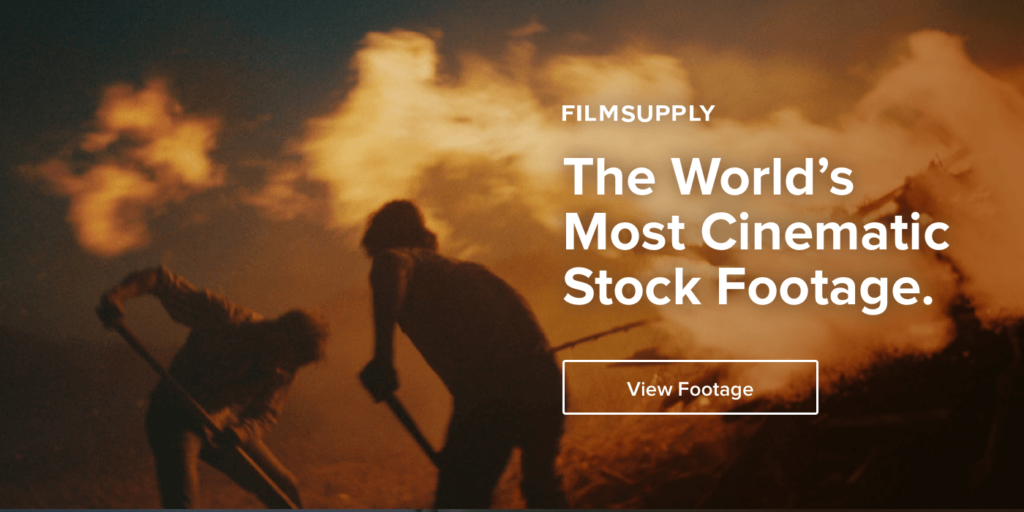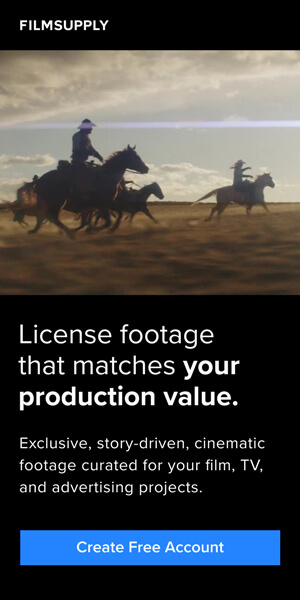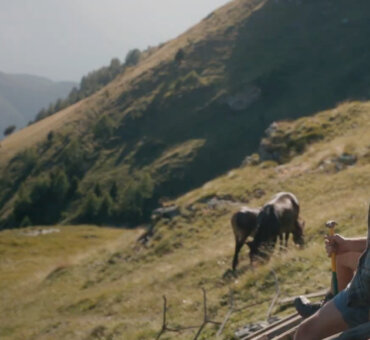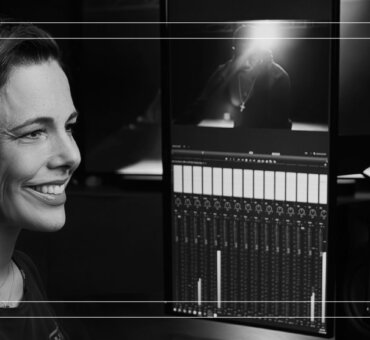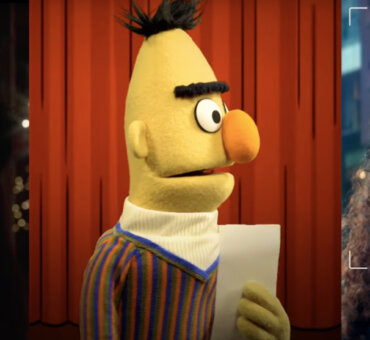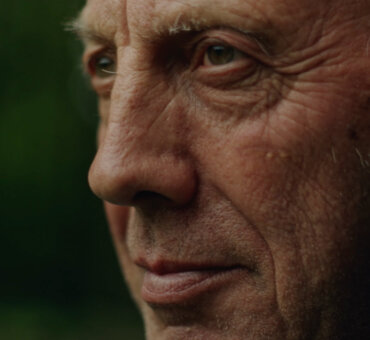There’s no shortcut to being a good storyteller, but there is a secret to it: you have to live. Because no matter who you are or what type of film you’re making, good storytelling comes from experience.
You have to get out there and put wear on the tires. You have to gather up life lessons, discover universal truths, and meet a few characters before you’ll get to where you want to go.
Scott Ballew, YETI’s Head of Content, believes this firmly. Not just for the people framing and capturing stories but also for the people—those characters—telling their story. You can hear more about it in our latest episode of Behind the Work, where Ballew offers insight into his storytelling philosophy and how he adapts it to branded work.
In this interview, we talked to Scott about the early days of YETI’s film endeavors and how the fly-fishing son of a musical icon opened Ballew’s eyes to the value of exploring a character’s heart, soul, and experiences.
Scott, give us an idea of your role at YETI.
I don’t know if there’s ever been an actual title assigned to my role. I think it’s Head of Content. It basically entails overseeing a bunch of short films, documentaries, commercials—pretty much anything with moving camera work. The bulk of that is a series of documentary shorts called YETI Presents.
Do you come from the creative or marketing side?
My background is in filmmaking. I grew up in Austin, but I was in California for ten years producing, executive producing, and directing commercials and branded films with different companies, the most recent being a company called Farm League.
We got hired to do YETI’s first broadcast spot, like, six years ago. On that trip, they realized they were blowing up and had a serious thing on their hands. They were trying to figure out how to spend their marketing money in a unique way, and [former CMO] Corey Maynard had the idea to do a film a week. That was their original goal.
He didn’t quite know what that meant in terms of what types of films or how long those films would be. But, he knew he wanted to do character-driven short films every week. He asked me to move to Austin to make that happen.
52 films a year seems pretty intense.
I wasn’t home for the first three years of doing this [laughing]. It was just me on the content side. A year into it, I was able to bring on Taylor Johns, who’s my counterpart and the Head of Production. We’d fly from Iceland to Alaska to Mexico to Hawaii to Montana to Benjamin, Texas, to California. We’d be shooting one film, editing two others, and prepping another one all at the same time.
How did you identify the stories you wanted to tell?
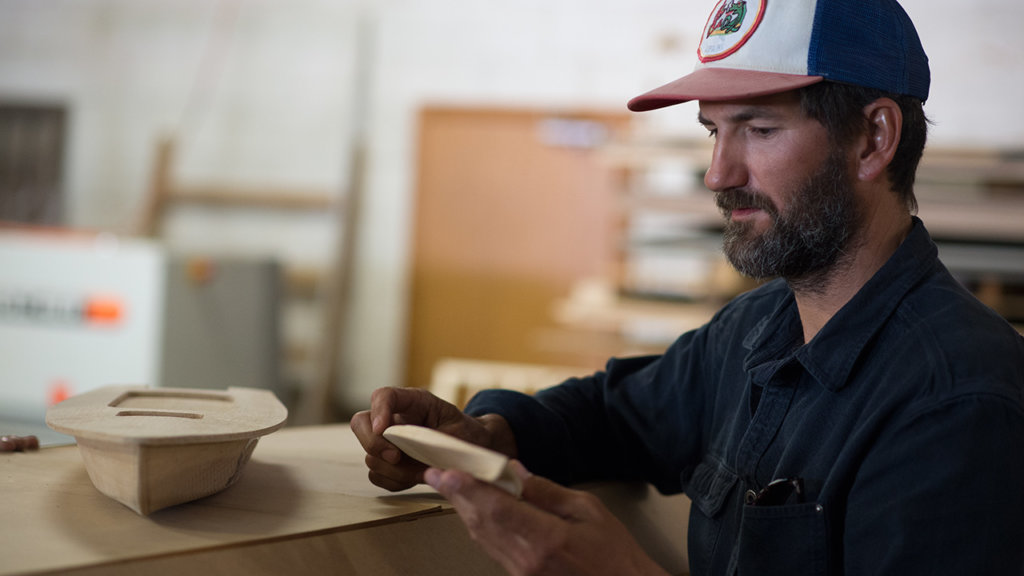
That was the hardest part of the role. We had to establish our voice—as well as our look, feel, and ethos—from scratch. YETI’s an outdoor brand, but so is Patagonia and The North Face. They make great films. What will make ours unique but true to YETI? That was the thing I spent most of my time trying to figure out.
Some of that was trial and error. We’d shoot something and think, “That doesn’t feel like us.” So, why didn’t it feel like us? We’d backtrack and see where things didn’t add up—this person wasn’t genuine, or this person wasn’t humble.
We had to go find five or six films that spoke to us before we had a full tapestry to work with. It’s not something you can just go out and find, like, “Here’s a page of what makes a YETI film—follow these rules, and you’ll make one.” We’ve tried to come up with charts and graphs, but it’s more instinctive and intangible.
What about things like marketing goals?
Roy Seiders, the company’s founder, was CEO when I started, and he was a revolutionary brand leader. He told me, “Don’t worry about showing the product or mentioning it. These [films] aren’t loose metaphors about durability or ice retention. Let’s keep these pure.”
Our CMO Cory Maynard was even more emphatic. He pretty much said, “Screw all that. I don’t want to see a cooler. I don’t want to talk about coolers.” It got to the point where it was annoying [laughing]. He was breaking down the hero’s journey on a whiteboard for a seven-minute branded film. It was a little unrealistic, but it was inspiring that someone who’s selling coolers cares enough to break down the transition going into the third act [laughing].
Is there a YETI film that solidified what it would all eventually become?
When we first started releasing the films, they were about cowboys. They were about fly fishermen. It was still very on-the-nose YETI: this guy lives in Colorado and sacrifices the comforts of corporate life to go fishing. That’s a pretty standard narrative to tell.
The first film that clearly deviated from that approach was the film with JT Van Zandt, who’s a fly-fishing guide and the son of Townes Van Zandt. If you’re not from Austin, Townes Van Zandt might not be as ingrained in the fabric of your being. But to me and my friends, Townes was bigger than Bob Dylan.
Here’s how the film came about. We needed to come up with an ad for Father’s Day. Rather than doing a campaign of dads fishing with their kids or whatever, we had the idea to do a series exploring the relationships between father and son, father and daughter, in the spirit of YETI Presents.
We shot a film on Hilary Hutcheson in Montana. We did Shane Dorian and his kid Jackson in Hawaii. We did the YETI founders, Roy and Ryan Seiders, and their dad Roger. We did football player and hunting guide Jordan Shipley and his dad, who was a well-known coach in Texas.
So, I heard about JT from an old fly-fishing shop in Austin. He was a celebrity in his own right, just through the affiliation. Plus, he had this cool persona of driving to Alaska by himself. He was like the fishing version of his dad—fishing through the lens of poetry. Of course, I didn’t want to do a film about Townes Van Zandt. I wanted to do a film about JT.
What do you think sets JT’s film apart?
When you meet JT, you see that he’s his own story. It was clear he was going to be a compelling subject who had meaningful things to say. He’s every bit the sage his dad was; he just didn’t put things on paper the same way his dad did.
There was something so genuine and raw and complex about JT’s story and what he went through. Music is something that captures people’s attention on a grander scale than fishing, so weaving those two worlds together—JT’s path to becoming a fisherman and his father’s path as a despondent dad and revered songwriter—it was just such an interesting, powerful message.
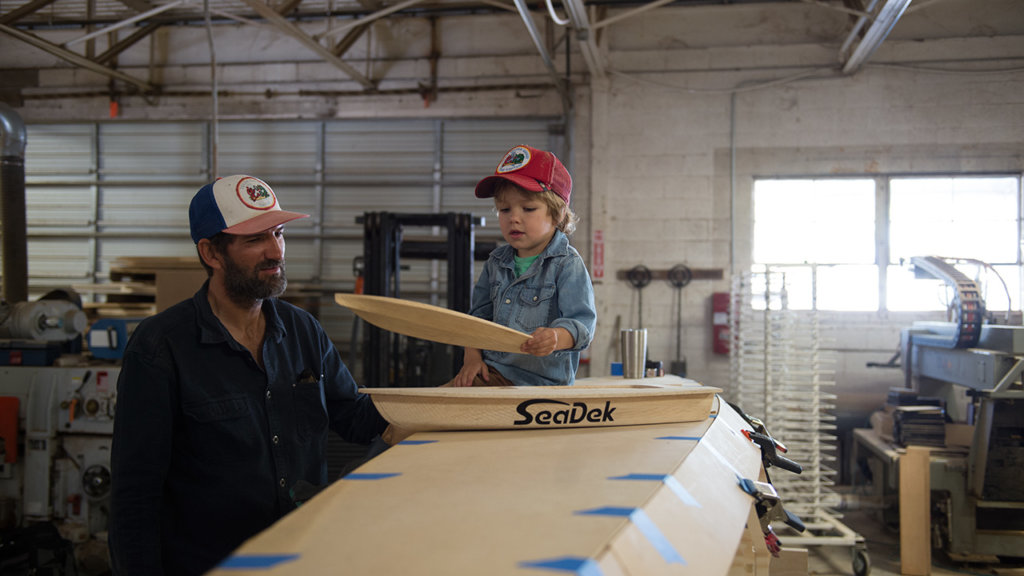
It’s still the first film I show people when they ask, “What kind of films does YETI make?” And it was the first one that, when it came out, people said, “Okay, this is not an ad.”
The film has all these things in it that really have nothing to do with YETI—or any brand for that matter. Instead, it captures all the complexities of human existence—passions, finding your own path, being a kid, raising a kid. We explore all of those things beautifully through JT’s eyes in eight minutes. It’s a really raw, sincere story of universal truths.
How do you get a subject like JT to share those truths?
Trust-building is the biggest magic in what we have and what we do. It’s the difference between something that will move an audience and make them feel something versus something that just looks really nice. Serving as producer for guys like Chris Malloy and watching how they establish the trust of their subject is huge.
You’ve got to get some things across to your subject early. We’re not here to screw you. We’re not here to take advantage of you. We’re here to tell your story exactly how you want to tell it—but we want to tell the truth. The goal isn’t to make you cry or spill the beans—it’s to get you to speak your truth. It’s our job to get it all out of you and then piece it all together in a way that represents your journey.
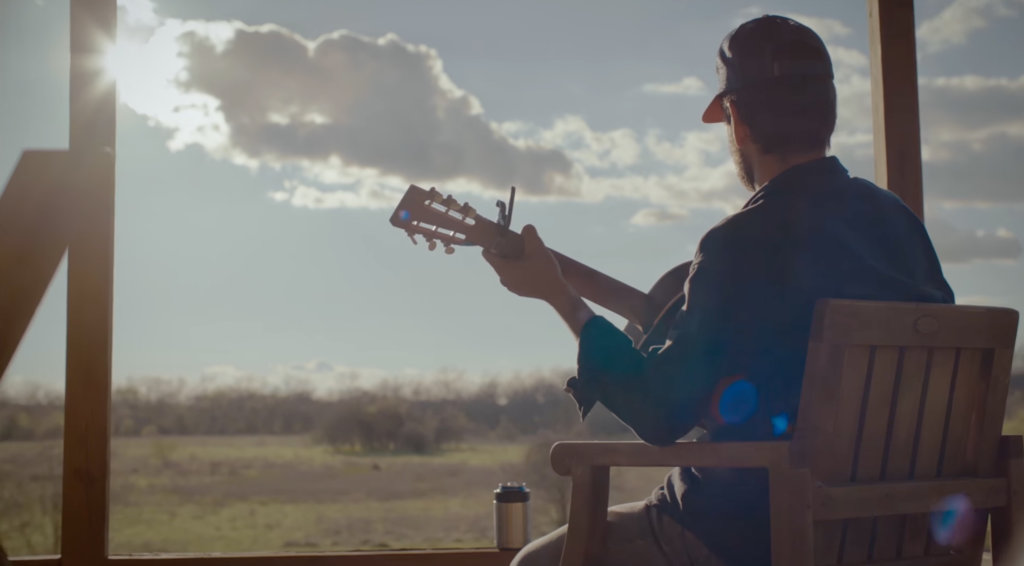
For a lot of our subjects, it’s the first time they’ve thought about things in this context. They’re so focused on doing, doing, doing—providing meals for their kids, getting their next sponsorship, going on the next trip.
They don’t step back and reflect on why. They don’t reflect on some of the people responsible for pushing them or helping them. I imagine it’s sometimes the first time they reflect on these things, and if it comes through on camera, that helps make that message impactful.
You’ve said that you “look through the cracks for your stories.” What does that mean to you?
I get a lot of treatments from filmmakers. The number one mistake I see is focusing on the wrong elements. Like, “This person sailed from here to here.” That’s a good headline. That’s a solid Instagram post. But, what’s the story there? What is this guy about? Why did he sail?
What we’re interested in is the stuff that’s deeper, or even more everyday—the demons, the philosophies, the challenges, and the obstacles. We’re trying to find a component of a person or their story that isn’t super obvious. Something that’s more universal and true and relatable to normal people like me.
Not everyone can relate to having a dad who’s the greatest songwriter of all time. My dad sold insurance. But, how you interact with a father, regardless of who he is, is universal. It’s about the good and the bad and what you take from those lessons and how you apply them to your kids or your wife or your friends.
Again, why did he sail? That’s what makes the story universal. A lot of people think the actual activity or achievement is the story, but what I think makes an interesting story—it’s not that.
What is it?
Something that’s a little more human. And, again, universal. The things that anyone can identify with. I don’t know if there is a specific answer. It’s not what you do that’s interesting. There are certain human emotions and complexities that transcend any sort of pursuit or brand or achievement. If you can distill it and then distill it some more and find a kernel of something in a person’s soul or psyche—that speaks to the why rather than what—I think that’s interesting.
It all comes down to experience and a point of view. You can have all the training and all the whiteboards and the hierarchy of needs and all the fucking Gantt charts, but until you ride the river and find your own point of view, it won’t be unique from anyone else. A lot of people can write songs. A lot of people can make films. But, being able to home in on your own point of view and your own experiences in a way that helps someone else identify with them—that’s everything.

